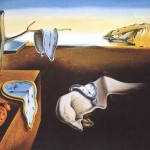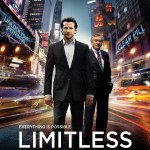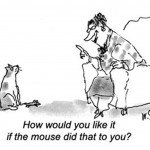When you practice sports, you get injuries. When you risk yourself in business or in academic life, you can get failures. At home, you can be hurt emotionally (and even physically sometimes). Still, if you miss the opportunity to avoid, deflect or block some hurtful event, here are some tips for the mindset you can adopt AFTER the hit.
I recently had the luck to get injured (yes, I said luck, also because it was minor) during my martial arts training. I am now in a cycle of recovery and low training (or none) for a few weeks. Beyond the frustration that the injury brought me, and all the reactions I may have had, here are some tips about what to AVOID after getting injured (and I guarantee you that these thoughts come from real experience!). I hope my mistakes will help you build your mindset whenever injury happen to you.
- Impatience: Maybe the most frequent and the most natural reaction to injury, especially after training. Once you get dependent to a lifestyle, for example training X days per week, building your self image around training, getting satisfaction from results, it becomes very difficult to let your own body stop you. Yet, however long it may take, we all know that there is no point pressuring on your wounds (unless you know you are VERY close to death anyway, or in extreme cases of responsibilities , abnegation or sacrifices). Impatience is probably also the most damaging, as it can increase gravity of the injury, therefore increase the other effects described below.
- Anger: Anger towards life, or anger towards whoever hurt you, accidentally or not, will definitely not heal you. On top of bursting micro-heart traumas everytime you force yourself to remember the pain, it will also keep your mind in the past and undermine your presentness. With all due respect to historians, the world needs more people who act for the present than people deep-diven in the past. There is a line between the (somehow natural) need of vengeance, and the ability to make your injury really meaningful by acting responsibly. You know on which side of the line anger will keep you.
- Loss of Morale: There is no doctor for willpower, your body might get hurt (badly) and cured, but your mindset is yours to care of. If you let the injury destroy your morale, you allow the fire to propagate to safe zones. Those latter can be your daily mood, how you treat people around you, the other activities you could maintain even when injured, the other activities you wanted to try before getting injured, etc. Keeping these threads active is what make your spiderweb of life resilient, avoid adding them to the injury total bill. Therefore, admit that the body is weak boat by essence, but that a strong spirit maintains the floating and enjoyable navigation. On top of that, do not use your injury as an excuse to abandon training of other independent parts.
- Pride: There are at least two reasons why you should not pull out pride out of your injuries. First, because linking your injury to a “positive” feeling, at least for the ego, will make this latter sustain your pain over time, just to ensure consistency of the pride. Sustaining your pain may start on an emotional plan (regular reminders, and expression, of how painful injury is or was) but also may end in maintaining physical pain. Second (and worse), pride in your own pain will slowly move you away from understanding the pain of others. If your pride had the time to root itself deeply, you are more likely to put all the pains of the world on a meaningless absolute scale, setting your own higher than others in order to contempt their petty reactions to small events. Yet, as mentioned before, injuries and wounds of all kinds and scales happened, happen and will happen. Focusing on valuating yours will naturally make you overlook others’. In other words, pride of pain acts as an wound maintainer AND empathy killer.
- Guilt: As well as morale loss and anger, guilt of having got injured keeps you in the past instead of the present. On top of that, guilt can be a disguised proud (“I am ashamed that I got injured, because I think of myself as wise or skilled enough to avoid it”). Injuries happen to the most skilled persons, and however dumb the cause was (for example foolishness or overconfidence), guilt does not make it better for yourself.
- Forgetting to actively learn: Slip on a banana skin once and you’ll be wary of banana skins. Our brain naturally learns from its previous pains (that’s essentially what’s pain, as a body process, exists). Yet, even beyond the natural lesson, our minds can get so stuck by the first 5 points that it leaves away the opportunity to learn of an injury from the inside ! Feeling the pain and the set of emotions that go with it is the best. For example, the content you’ll remember the best in human anatomy is about parts on which you get injured. Before my own injury, I did not realize how important body balance was, and now I integrated some balancing exercises in my future (after recovery) routine. Knowing and realizing is different, sometimes, pain is a shortcut to realizing. Getting hurt brings you the same riches as when you fail: a light cast for new things to learn. Ultimately, everytime you learn something, it makes the lesson more meaningful (and it’s also why I write about my injury)
- Forgetting the adapt: Last, and more practical than philosophical, do not forget to adapt your lifestyle to your injury. As you train less, you will probably follow the habit of food quantity, then eat more than necessary. Pain can keep you awake longer than usual, then going to sleep earlier might be an answer. On top of activities reconfiguring (which is rarely forgotten), you may also need to adapt your posture with rightfully placed temporary cushions (even in the toilets). You might need to change a few things in furniture or items placement, again on a temporary basis, but it would be dumb to hurt yourself again or set yourself a daily useless reminder.
Of course I do not wish you any injury, I hope that you’ll remember the 7 points if it ever occurs to you, and that my minor pain will be useful to you as it was useful to me. Note: you can apply those principles to all kinds of injuries (emotional, psychological, on top of physical).
Have a smiling day !







Comments by Alex